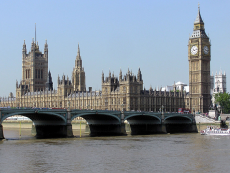
In this part of her speech, she signalled that a key priority for her would be to keep the union together. It is universally accepted that the union has been under an incredible amount of strain in recent years, especially in Scotland, which had a referendum on whether to part from the rest of the UK in 2014 and voted 45% for, 55% against. And the chance of a split is still very real since the Scottish National Party (SNP), whose central policy is to have Scotland become independent from the UK, is the majority party in the Scottish Parliament and has the most Scottish seats in the UK Parliament.
Her words were then backed up by actions as in the first days of her time as Prime Minister, she went to Scotland so as to speak to Scotland’s First Minister, leader of the SNP Nicola Sturgeon. During the visit she declared to the Scottish people that she would “always be on your side”, emphasising again the “special union” between Scotland and the rest of the UK. Importantly, coinciding with her visit, her newly-formed government pledged to include “Scotland’s devolved administration in negotiations to withdraw Britain from the EU”, as the Guardian reported.
She went on to visit Wales so as to meet with the nations’s first minister Carwyn Jones. Along with this visit she made a promised that her government would, “do everything [it] can to look after the workers and wider community as we work with Tata and the Welsh government.” She also visited Northern Ireland, where she assured the nation that border controls won’t be put up between itself and Ireland in the wake of Britain’s exit from the EU. Additionally, according to the Telegraph, “she said she will not trigger Article 50 – the formal process for withdrawing from the EU – until all the devolved nations in the country agree.” With Britain deciding to leave the EU, Theresa May in her first month has clearly decided that a key priority for her is to shore up the ties between all four nations in the union.
Another key part of her government’s plans has been regarding grammar schools. Under Tony Blair, who was Prime Minister between 1997 and 2007, the government banned any new grammar schools from being created. However, on the 6th August it was revealed that Theresa May was planning to scrap the 18 year-old ban so as to allow a new series of grammar schools to be built. It came as a shock to many and an unwelcome one to the Liberal Democrats and Labour parties, who have suggested that they will attempt to block such legislation from being passed in parliament. Leader of the Lib Dems, Tim Farron stated:
"I am prepared work with people in all parties from modernising Tories to the opposition parties to stop this plan. The government's majority is so small - they need to see the danger signs.
"I am committed to making sure this issue is Theresa May's first U-turn as Prime Minister. I will use everything at my disposal to stop this happening.”
In spite of the contempt with which many centrist and left-wing politicians regard grammar schools, many Conservatives believe they are the key to social mobility. And with plans for new grammar schools having recently been leaked, it looks likely that selective schooling is about to enjoy a renaissance under our new PM.
Image: By Adrian Pingstone (talk · contribs) (Self-photographed) [Public domain], via Wikimedia Commons

0 Comment:
Be the first one to comment on this article.